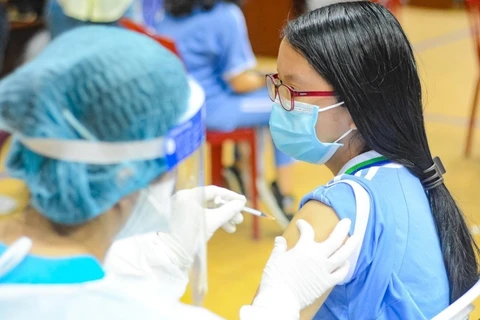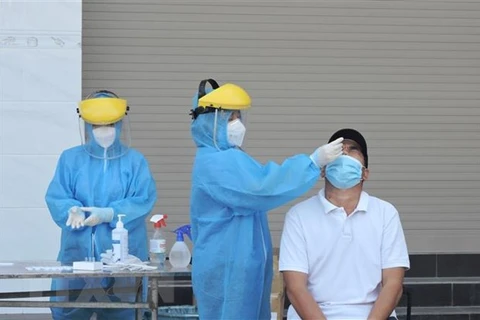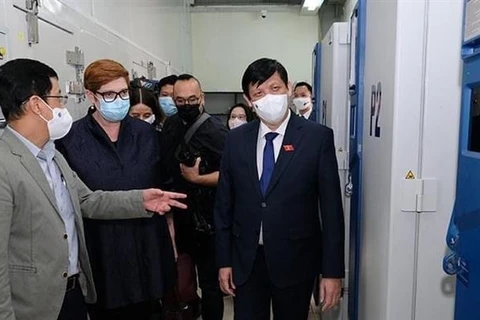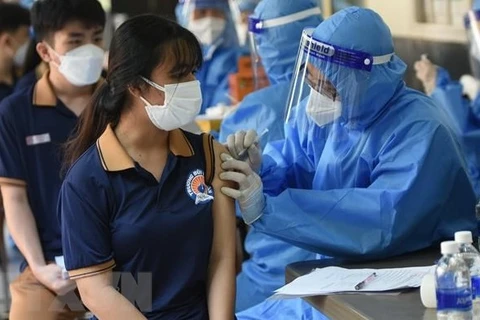Hanoi (VNA) – Deputy Minister of Health Do Xuan Tuyen, on behalf of the Health Ministry, received 50,000 doses of AstraZeneca COVID-19 vaccine that Austria presented to Vietnam during a ceremony held on November 16.
At the event, Austrian Ambassador to Vietnam Hans-Peter Glanzer spoke highly of Vietnam’s major achievements in the national COVID-19 vaccine rollout.
 The Ministry of Health symbolically receives the AstraZeneca vaccine donated by the Austrian Government. (Photo: VNA)
The Ministry of Health symbolically receives the AstraZeneca vaccine donated by the Austrian Government. (Photo: VNA) For his part, Tuyen thanked the Austrian Government, organisations and businesses for their support via projects supplying medical equipment in a bid to improve the quality of health care services in Vietnam.
The assistance is of great importance as Vietnam and Austria will celebrate the 50th founding anniversary of diplomatic ties next year, thereby promoting the countries’ friendship and cooperation, he affirmed.
Vietnam is exerting efforts to bolster vaccine coverage, including inoculation for children aged between 12 and 17, together with applying other preventive measures, Tuyen said./.





























